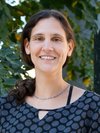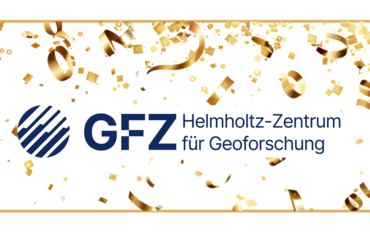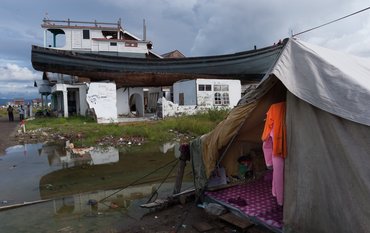From the research center to the classroom
At the 22nd Autumn School of the GFZ School Lab, scientists from various research institutions offered training to around 100 teachers on the topic of ‘Urban spaces: hotspots in the Earth system’.
On 11 and 12 November 2024, the German Research Centre for Geosciences' (GFZ) School Lab, in cooperation with the German Meteorological Society (DMG), organized the 22nd “Autumn School System Earth” teacher training course. This year's topic was ‘Urban spaces: hotspots in the Earth system’. Around 100 teachers, trainee teachers and students as well as staff from educational institutions took part. They came mainly from Berlin and Brandenburg, but also from Saxony, Thuringia and Schleswig-Holstein.
An important aim of the autumn school is to make topics and the current state of research in the geosciences available for school lessons. The aim is to strengthen the scientific part of geography lessons and to get pupils interested in the geosciences. To this end, scientists from various institutions have been invited as speakers. Workshops are also part of the program. The event is recognised by the Brandenburg Ministry of Education, Youth and Sport and the Berlin Senate Department for Education, Youth and Family as further training for teachers.
This year's scientists came from the Technical University of Berlin, the University of Freiburg, the Potsdam Institute for Climate Impact Research (PIK) and the German Aerospace Centre (DLR). From the GFZ, Prof Dr Marco Bohnhoff (Head of Section 4.2 Geomechanics and Scientific Drilling), Dr Elena Macdonald (Section 4.4 Hydrology), Dr Marco Pilz (Section 2.6 Earthquake Hazards and Dynamic Risks), Dr Tilo Schöne (Section 1.2 Global Geomonitoring and Gravity Field) and Dr Erika von Schneidemesser (RIFS) took part. In addition, a representative of the Senate Department for Mobility, Transport, Climate Protection and the Environment in Berlin contributed the perspective of politics, which is responsible for urban planning. The presentations were followed by a lively professional exchange with room for discussion and questions.
An excerpt from the program:
- Lecture: Earthquake risk in the Istanbul metropolitan region: Scenarios based on many years of research and prospects for future forecast-based warning systems (Prof Dr Marco Bohnhoff, GFZ)
- Lecture: Rising Sea Level - Increased Risk: The Ocean and the Sinking Land (Dr Tilo Schöne, GFZ)
- Lecture: Flood risks in urban areas (Dr Elena Macdonald, GFZ)
- Keynote speech: Urban spaces - living in a changing climate and the need for adaptation (Prof Dr Jürgen Kropp, PIK)
- Lecture: Urban air quality research: links with mobility and health (Dr Erika von Schneidemesser, RIFS)
- Lecture: How does Berlin influence the atmosphere in the lowest kilometers? Insights from the Urbisphere-Berlin measurement campaign (Dr Daniel Fenner, University of Freiburg)
The Autumn School provides a comprehensive transfer of knowledge, which is why the learning content is not only conveyed through lectures, but is also developed by the students themselves: The workshops provide teachers with easy-to-use exercises and ideas that they can incorporate into their lessons.
Both technical content on the topic of ‘urban spaces’ and methods for the further development of lessons are taught. From the journey a banana takes to get to the supermarket to the redesign of old buildings, there was plenty of exciting content that is relevant to everyday life. Topics such as ethics, politics, economics and environmental education complemented the science-orientated training.
Participants were also given ideas for specific experiments and materials for geography lessons. The experiments are kept simple and can be carried out with little effort. The topics are varied and there are experiments for primary schools as well as for lower and upper secondary schools. The experiments can also be carried out at home by young and old researchers.
Instructions for experiments can be downloaded here.
The complete program can be found here (with abstracts) and here (overview).
(It is only available in German.)


![[Translate to English:] Many people are listening to a presentation in the GFZ lecture hall.](/fileadmin/_processed_/c/a/csm_1_Bild1_hell_86e9df3348.jpeg)
![[Translate to English:] A few people are sitting around a table and one of them is working with sand in a small box.](/fileadmin/_processed_/d/b/csm_5_Bild_5_P1160521__hell_f57087b195.jpeg)
![[Translate to English:] A few people are working with laptops.](/fileadmin/_processed_/7/3/csm_6_Bild_1_Banane_25b556cb7e.jpeg)
![[Translate to English:] There are a some papers lying on a table. A hand is pointing out to a stack of paper cards.](/fileadmin/_processed_/6/4/csm_3_Bild_7_P1160422_hell_41880b4601.jpeg)
![[Translate to English:] There a some people working together and sitting around a table. There are some cards placed on the table.](/fileadmin/_processed_/b/3/csm_4_Torfitz_e396aecc14.jpeg)
![[Translate to English:] Blue and red water mix in a transparent container. Two people are watching.](/fileadmin/_processed_/8/8/csm_2_P1160491_unter_5_mb_abbe20e37b.jpeg)

![[Translate to English:] Fire in a forest, smoke rising, aerial view from above](/fileadmin/_processed_/8/3/csm_2025_01_06_AdobeStock_415831729_5a0e6d50d3.jpeg)









![[Translate to English:] [Translate to English:] Abror Gafurov von dem Schriftzug "Welcome to Azerbaijan" und den UN und COP Logos](/fileadmin/_processed_/2/5/csm_2024_11_Baku_COP29_Abror_Gafurov_1042faec82.jpeg)


![[Translate to English:] Martin Herold standing in front of the library on the Telegrafenberg](/fileadmin/_processed_/c/d/csm_Martin_Herold_d385ee4dd9.jpeg)






![[Translate to English:] Both scientists sitting on stools in front of a wall of books in the Telegrafenberg library](/fileadmin/_processed_/6/6/csm_Buiter_Castell_DORA_4_e87cb1ea18.jpeg)
![[Translate to English:] Gruppenbild mit 4 Personen](/fileadmin/_processed_/8/d/csm_20241017_GFZ-Emmerman-Medal-005_web_reinhardtundsommer_21a414fa4a.jpeg)






![[Translate to English:] Ice landscape with five red tents](/fileadmin/_processed_/8/9/csm_Zeltlager_auf_dem_Eis_Urheberin_Jenine_McCutcheon_5ced2d523b.jpeg)
